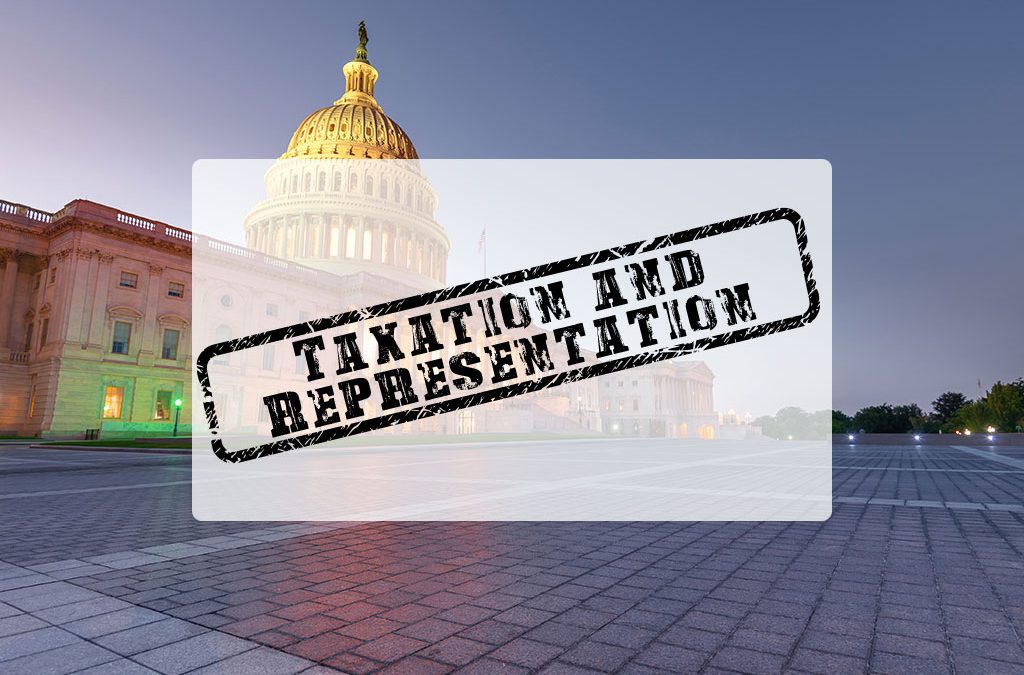The data is in! See what family owned businesses are saying about today’s challenges and opportunities.
Biden Signs Two-Step Continuing Resolution into 2024. On Nov. 15, Congress staved off a government shutdown by passing a “laddered” continuing resolution (CR) with strong bipartisan support—the House passed the measure in a 336-95 vote and the Senate passed it in an 87-11 vote. Speaker Mike Johnson (R-LA) and GOP leadership’s “laddered” Continuing Resolution (CR) creates different funding deadlines for the 12 fiscal year (FY) 2024 bills. The measure provides a Jan. 19 deadline for four bills (Agriculture-FDA, Energy and Water, Military Construction-VA, and Transportation-HUD) and a Feb. 2 deadline for eight bills (Commerce-Justice-Science, Defense, Financial Services-General Government, Homeland Security, Interior-Environment, Labor-HHS-Education, Legislative Branch, and State and Foreign Operations). Speaker Johnson ruled out an additional clean stopgap funding bill for the next round of funding, setting up the possibility for a partial government shutdown in late January or a full shutdown in early February. Additionally, the Fiscal Responsibility Act (P.L. 118-5) provides that 1% budget cuts would be triggered in January if Congress does not pass all 12 full-year funding measures, but the across-the-board funding cuts would not impact agencies until April 30. Members of Congress are currently debating whether a year-long CR lasting until September 2024 would trigger the cuts, as the law states that cuts would take place if the government is operating under a short-term CR for “part of” the fiscal year. Democrats argue that a stopgap until September would count as a full year, allowing for no cuts to funding, while Republicans say that a CR until September would trigger the cuts.
Senate Democrats Introduce Carried Interest Bill. On Nov. 15, Senate Finance Committee Chair Ron Wyden (D-OR) and Sens. Sheldon Whitehouse (D-RI) and Angus King (I-ME) introduced the Ending the Carried Interest Loophole Act (S. 3317), which would end the tax break on carried interest that they said disproportionately benefits wealthy Americans. The bill would prevent the recharacterization of compensation earned by hedge fund managers and requires them to recognize their annual compensation, which would be taxed at ordinary income rates. Other Senate Democrats that co-sponsored the bill were Sens. Elizabeth Warren (D-MA), Bernie Sanders (I-VT), Brian Schatz (D-HI), Jack Reed (D-RI), John Fetterman (D-PA), Ed Markey (D-MA), and Mazie Hirono (D-HI). The bill text was released alongside a press release, along with a summary and one-pager of the bill.
UN Proceeds with New Global Tax Reform Plan; Treasury Pushes for Delay in Pillar One Deadline. With the support of 125 countries, the United Nations voted on Nov. 22 to establish a working group on international tax rules. The new working group will be a direct challenge to the yearslong effort by the Organisation for Economic Cooperation and Development (OECD) to implement a global tax regime. The UN effort met with opposition from 48 countries, including the United States and the EU countries that have championed the OECD effort. Developing countries have led the campaign for an alternative to the OECD’s two-pillar approach based on concerns that the framework would only benefit developed nations.
IRS Announces Another Delay in Form 1099-K Reporting Threshold for 2023. On Nov. 21, the Internal Revenue Service (IRS) released Notice 2023-74 announcing a delay of the $600 Form 1099-K reporting threshold for third-party settlement organizations for calendar year 2023.

About Brownstein Hyatt Farber Schreck
Brownstein Hyatt Farber Schreck is a unique law firm. Walk into any of our offices and you’ll immediately recognize a different type of energy. Complacency doesn’t have a place here. Flexibility and inspiration do. Our culture and enthusiasm allow our attorneys, policy consultants and legal staff to stay ahead of our clients’ needs and provide them with the resources they require to meet their business objectives.
We hope you've enjoyed this article. While you're here, we have a small favor to ask...
As we prepare for what promises to be a pivotal year for America, we're asking you to consider becoming a member.
The need for fact-based reporting of issues important to family owned businesses and protecting a lifetime of savings has never been greater. Now more than ever, successful families and family owned businesses are under fire. That's why Family Enterprise USA is passionately working to increase the awareness of issues important to family owned businesses built on hard work, while continuing to strengthen our presence on Capitol Hill. The issues we fight for or against with Congress in Washington DC include high income tax rates, possible elimination of valuation discounts, increase in capital gains tax, enactment of a wealth tax, and the continued burden of the gift tax, estate tax and generation skipping tax.
Family Enterprise USA promotes generationally owned family business creation, growth, viability, and sustainability by advocating for family businesses and their lifetime of savings with Congress in Washington DC. Since 2007, Family Enterprise USA has represented and celebrated all sizes, professions and industries of family-owned enterprises and multi-generational employers. It is a bi-partisan 501.c3 organization. Family foundations can donate.
#incometax #CapitalGainsTax #R&DExpensing #DontPunishSuccess #GrantorTrusts #StepUpinBasis #likeKindExchanges #AcceleratedDepreciation #EstateTax #Deathtax #wealthtax #taxLegislation #CongressionalCaucus #incometaxrates #repealestatetax #AdvocatingForFamilyBusinesses #FamilyOwnedBusiness #WomenOwnedBusiness @FamilyEnterpriseUSA #FamilyEnterpriseUSA

